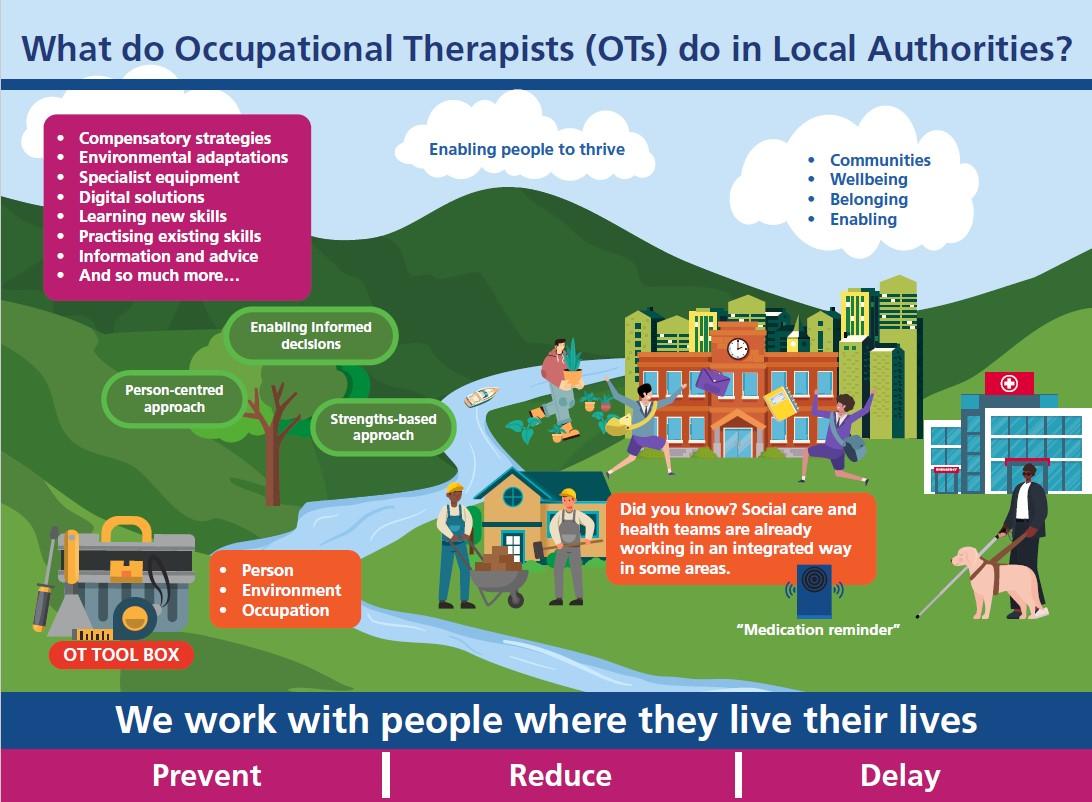An Occupational Therapist (OT) and OT support workers help people of all ages overcome challenges completing everyday tasks or activities. These are what we call ‘occupations’.
Occupational therapists see beyond a person’s diagnosis and limitations. They look at relationships between the activities you do every day – your “occupations” – alongside the challenges you face and your environment.
Support to regain independence can help open up new opportunities and increase your sense of wellbeing.
We may be able to help if you are
- over 18
- have a long-term health condition resulting in disability and;
- need help with practical tasks
We can support you with things like:
- entering and leaving your home
- washing, bathing and using the toilet
- Getting in and out of bed
- using living and sleeping areas
- using food preparation and cooking areas
- reducing risks in your home related to your long-term health condition

